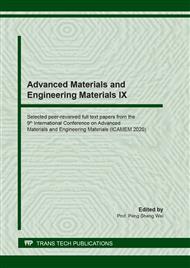p.371
p.378
p.383
p.388
p.395
p.401
p.409
p.414
p.421
Shale Stability Evaluation and Leakage Control of High Density Clay Free Brine Drilling Fluid
Abstract:
In view of the particularity of deep-water thick rock reservoir, in order to deal with the problem of poor reservoir stability and serious loss of drilling fluid in the drilling fluid design of M oilfield, this paper has carried out the reservoir inhibitor optimization evaluation test for the salt resistant high-density drilling fluid which has been designed and optimized, and also carried out the appropriate selection of plugging materials and plugging effect test for the loss of salt gypsum layer. The results show that the stability of saturated salt water drilling fluid in the salt gypsum layer with shale can be effectively ensured by the combination of CPI and uhib inhibitors within 2%. At the same time, FloSeal, a new plugging agent for 1-2mm fractures, is selected, and its plugging loss capacity is stably controlled below 30ml.
Info:
Periodical:
Pages:
395-400
DOI:
Citation:
Online since:
September 2020
Authors:
Keywords:
Price:
Сopyright:
© 2020 Trans Tech Publications Ltd. All Rights Reserved
Share:
Citation:


